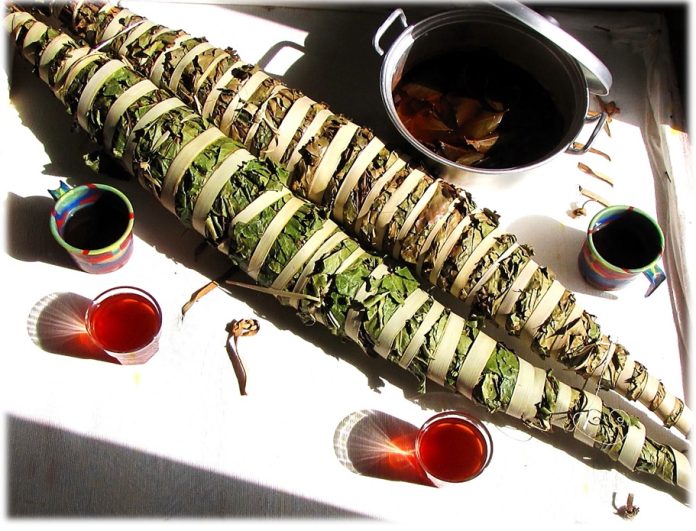Introduction
Kinkeliba tea, also known as “African green tea,” is a popular herbal tea native to West Africa. The Kinkeliba plant, whose leaves are used to make it, has been used for generations in traditional medicine to cure various ailments. Due to its many health advantages, kinkeliba tea is becoming more and more well-known internationally. In this post, we’ll examine the advantages of Kinkeliba tea and the reasons you might want to incorporate it into your diet.
Read more: How To Elevate a Boring Cup of Coffee
Kinkeliba Tea Benefits
• Packed with antioxidants
Antioxidants, which assist in shielding the body from the harm of free radicals, are abundant in kinkeliba tea. Free radicals are unstable molecules that may harm cells and have a role in the emergence of chronic conditions, including diabetes, heart disease, and cancer. You can strengthen your body’s natural defenses and lower your chance of contracting certain illnesses by drinking Kinkeliba tea.
· Supports liver health
Toxins and waste materials are filtered out of the body by the liver. It has been demonstrated that kinkeliba tea promotes liver function by lowering oxidative stress and inflammation. Also, it aids in enhancing liver function, enhancing general health, and lowering the risk of liver illness.
• Enhances intestinal wellness
Due to the modest diuretic properties of kinkeliba tea, bloating, and water retention may be lessened. Moreover, it has a calming impact on the digestive tract, which may aid in lowering inflammation and fostering good digestion. Because of this, Kinkeliba tea is a fantastic option for anyone with digestive problems, including bloating, constipation, or diarrhea.
· Supports cardiovascular health
Kinkeliba tea has been shown to help reduce cholesterol levels and improve blood circulation, which can reduce the risk of cardiovascular disease. It also has a mild blood-thinning effect, which can help to prevent blood clots and reduce the risk of stroke.
· Boosts immune system
Vitamin C, crucial for a strong immune system, is one of several vitamins and minerals in kinkeliba tea. Moreover, it possesses antibacterial and anti-inflammatory qualities that can aid in preventing infections and reducing bodily inflammation.
Understanding Kinkeliba Tea
Before we dive into the specifics of storing Kinkeliba tea, it’s important to understand the tea itself. Kinkeliba tea is a caffeine-free herbal tea made by brewing the dried leaves of the Kinkeliba plant in hot water.
The tea has a slightly bitter taste and a nutty aroma and is often compared to the taste of green tea or rooibos tea. The antioxidants in kinkeliba tea, which include flavonoids and phenolic components, assist in shielding the body from the harm that free radicals may do. It is also a rich source of vitamins and minerals, including C, A, and potassium.
Storing Kinkeliba Tea
Kinkeliba tea is a delicate herbal tea that requires proper storage to maintain its flavor and nutritional properties. Here are some tips for storing Kinkeliba tea:
1. Store in a Cool, Dry Place
Tea from Kinkeliba should be kept out of direct sunlight in a cool, dry location. When exposed to heat and sunshine, tea can lose its taste and nutritional value. Tea from Kinkeliba is best kept in a cold pantry or cabinet.
2. Choose an airtight container.
It’s crucial to store Kinkeliba tea in an airtight container to keep moisture and air from tainting the beverage. This can be a glass jar with a tight-fitting cover or a resealable bag for keeping tea.
3. Avoid Exposure to Strong Odors
Strong scents can be absorbed by kinkeliba tea, which may alter the flavor. For this reason, it’s important to store the tea away from other strongly scented items, such as spices or cleaning products.
4. Do Not Store it in the refrigerator
While storing Kinkeliba tea in the refrigerator may seem logical, this is not recommended. The flavor and nutritional value of the tea might be impacted by the other items in the refrigerator’s dampness and scents.
5. Keep Away from Humidity
Kinkeliba tea should be kept away from humidity, as excess moisture can cause the tea to develop mold or become stale. Avoid storing the tea in areas of the home prone to high humidity, such as the bathroom or kitchen.
Some interesting facts about Kinkeliba tea
- Kinkeliba tea is made from the leaves of the Combretum micranthum plant, which is native to West Africa.
- The Kinkeliba plant has a long history of traditional use in West Africa for its medicinal properties. It is often used to treat conditions like fever, diarrhea, and liver problems.
- Kinkeliba tea is a rich source of antioxidants, including flavonoids and phenolic compounds, which help to protect the body from damage caused by free radicals.
- Kinkeliba tea is also rich in vitamins and minerals, including C, A, and potassium.
- Kinkeliba tea has a modest diuretic effect that might help lessen bloating and water retention.
- Kinkeliba tea is an excellent substitute for conventional tea and coffee because it lacks caffeine.
- Kinkeliba tea is a natural hangover remedy in some parts of West Africa.
Conclusion
Kinkeliba tea is a natural and delicious way to improve your health. Its numerous health benefits make it an excellent addition to any diet. Drinking Kinkeliba tea regularly protects your body from damage caused by free radicals, supports liver and digestive health, improves cardiovascular health, and boosts your immune system.
Apart from that, if you want to know about Running a Clinical Trial, then please visit our health Category.
FAQs
Kinkeliba tea has a slightly bitter taste and a nutty aroma. It is often compared to the taste of green tea or rooibos tea.
Kinkeliba tea is naturally caffeine-free, making it a great alternative to traditional tea and coffee.
To make Kinkeliba tea, the dried leaves of the Kinkeliba plant are brewed in boiling water for several minutes. You may drink the tea hot or cold, and you can usually sweeten it with honey or another natural sweetener.

















